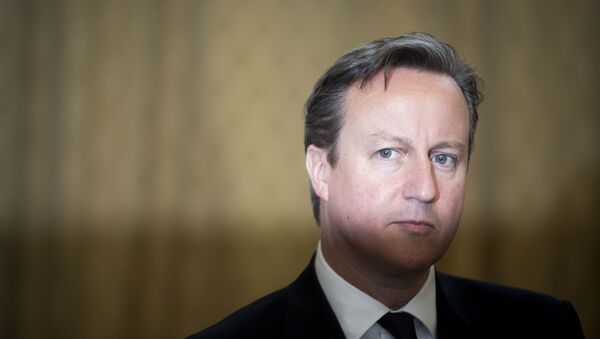Cameron hosted the last NATO summit, in Newport, South Wales in September 2014, when he announced that — as part of the UK's commitment to spend 2 percent of GDP on defense — Britain would buy a fleet of new armored vehicles, the new F-35B Joint Strike Fighter, a new air-to-air refueling fleet and would go ahead with commissioning its second new aircraft carrier.
He declared:
"They are an investment in British security, in British prosperity and our place in the world, transforming our ability to project power globally whether independently or with our allies."
Having shared the stage with US President Obama, he was at the top of his political game, looking all the way a global leader of a major player within NATO. Two years on, as he attends the Warsaw summit, his figure — and that of his country — is diminished.
NATO SG Stoltenberg at #WSEF16 — Brexit will change the UK's relations with the EU, but it will not change the UK's leading role in NATO
— Brian Whitmore (@PowerVertical) July 8, 2016
The first press conference in Poland was with Obama, European Commission President Jean-Claude Juncker and European Council President Donald Tusk in a clear sign that the new NATO balance of power rests between Washington and Brussels.
Eastern Deployments
In an attempt to show strength, the UK Defense Secretary Michael Fallon announced that Britain would be sending a 500-strong battalion to Estonia and 150 troops to Poland to "deter Russia from any further aggression." However, this was already a commitment made at the 2014 Wales summit.
So, UK is sending troops to Estonia & Poland "to counter Russian threat".
— UK Rants 4 Leadsom (@uk_rants) July 8, 2016
Funny, I thought most 'threats' were coming from another region…
The UK is further diminished following the report by Sir John Chilcot into the invasion of Iraq in 2003, which condemned the use of flawed intelligence and bad military and political planning for the invasion and its aftermath.
In his report, Chilcot declared:
"The Government's preparations failed to take account of the magnitude of the task of stabilizing, administering and reconstructing Iraq, and of the responsibilities which were likely to fall to the UK. The scale of the UK effort in post-conflict Iraq never matched the scale of the challenge. Whitehall departments and their Ministers failed to put collective weight behind the task."
As Chilcot put it: "Above all, the lesson is that all aspects of any intervention need to be calculated, debated and challenged with the utmost rigor."
Thus, Cameron's last NATO summit before stepping down as UK prime minister will be an unhappy one: Britain is about to leave the EU and its military wings clipped by the fallout from the invasion of Iraq. The next UK prime minister will have her work cut out too.



